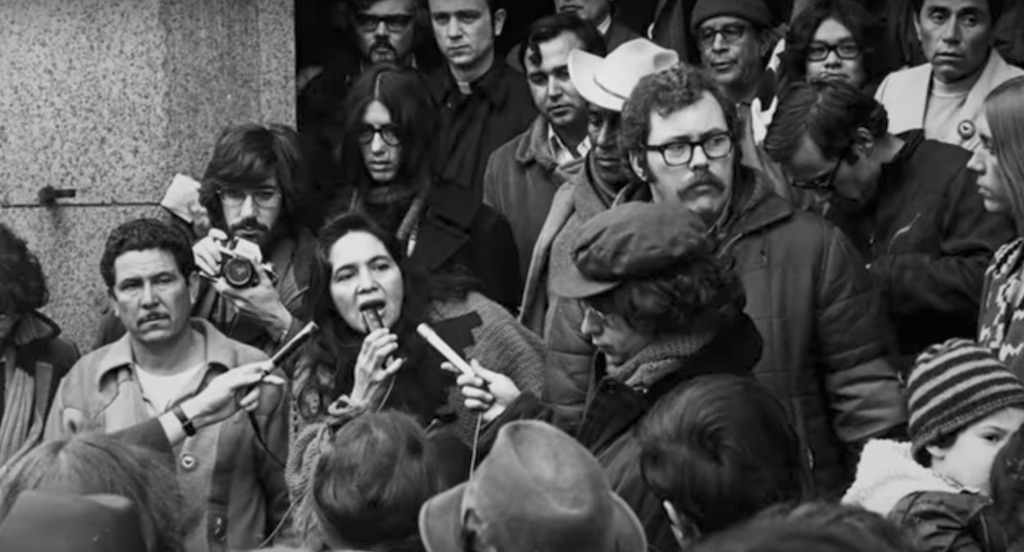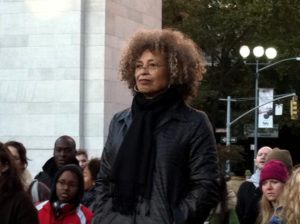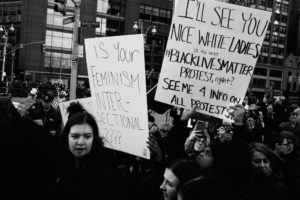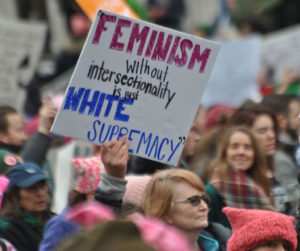Sí, Se Puede: ‘Dolores’ Reminds Us to Keep Fighting for Human Rights
The new film tells the story of social justice icon Dolores Huerta. Truthdig sat down for a conversation with her and director Peter Bratt. A scene from "Dolores." (YouTube)
A scene from "Dolores." (YouTube)
The United Farm Workers (UFW) transformed the United States labor movement, making impressive gains for its members, including pay raises, medical insurance and paid vacations. Most people associate those gains and the first national farmworkers’ union with the late Cesar Chavez.
But Dolores Huerta, the only women to sit on the UFW executive board, co-founded the group with Chavez in 1962. Huerta was a lead negotiator for the union; the director of a national grape boycott, which led to contracts for the farmworkers; and the originator of the phrase “Sí, se puede,” which people associate with Chavez (and which Barack Obama used in his presidential campaign as “Yes, We Can.”) Now 87, Huerta is still fighting for human rights with the Dolores Huerta Foundation.
“Delores,” a new documentary about Huerta, shows how the labor leader fought for environmental and racial justice as well as women’s rights. It combines archival footage and interviews with Dolores and some of her 11 children as well as people such as Luis Valdez, founder of Teatro Campesino, House Minority Leader Nancy Pelosi, activist and author Angela Davis, and feminist leader and journalist Gloria Steinem. “Dolores” premiered at the Sundance Film Festival on Inauguration Day, and Huerta led the Women’s March in Park City, Utah, the following day. The film was released Sept. 1 in New York and Sept. 8 in Los Angeles.
Peter Bratt (“Follow Me Home,” “La Mission”) directed “Dolores,” after being asked to by musician Carlos Santana. Bratt, who was raised by a single Peruvian indigenous mother in San Francisco, went to marches with Huerta when he was a child. The day after “Dolores” screened at the San Francisco International Film Festival (where it won an audience award), Huerta (who had been up dancing till 2 in the morning) and Bratt sat down with Truthdig to talk about the importance of groups getting out of their silos to work together, how social movements—not just laws—can change how people feel and how Huerta learned to legislate.
Emily Wilson: Is this a movie you’ve been wanting to make a long time?
Peter Bratt: (Laughs) I had no plans to make a documentary film. This started four years ago with Carlos Santana. This was his idea. This was a story he said we had to make. So when he kind of threw down the challenge, we had to step up and meet it. Through the process though, I think when I get to the end of my road and I look back, I think this will be one of the things I’m most proud of.
EW: What convinced you to do it?
PB: I wasn’t that familiar with the genre. Then I was also a little intimidated by labor history. It’s an important history, but how do you engage audiences, especially younger audiences? It wasn’t until I dove into the material and realized that Dolores on her journey started off fighting for labor, but it soon ballooned into this struggle for racial justice, feminism and environmental justice. Once I realized that—that she really lived at the intersection of these struggles, then it became an exciting and dynamic opportunity to tell a great story.
EW: How about you? Did you have any hesitation about doing this movie?
Dolores Huerta: I was concerned because there were so many people who died for the farmworker movement, who went to jail, people were beaten up. Millions of people supported the farmworkers with the boycotts that made it possible for farmworkers to have those basic human rights of a toilet, drinking water, relief periods, safety standards, the right to organize that other workers had in this country since the ’30s, but yet farmworkers were denied that, primarily because they were Mexicans. I heard one of the farm bureau guys say, “Yeah, we left them out because they were Mexicans and coloreds.” This is a direct quote from one of the Farm Bureau Federation officials.
EW: You were in your early 20s when you started drafting legislation. How did you do that?
DH: (Laughs) It was interesting. You ask people how do you do it and they tell you. I found out that I could go to the law library there in Sacramento, and I could do the research on the laws I wanted to change. Once I found the section of the law that it applied to, I would go to one of my friends in the Capitol—the great Philip Burton from San Francisco was a friend of mine. They would give me a letter, and you go down to the Legislative Council’s office, and they would draft the bill for you. It was awesome. The way we got the bills passed is we went to the people in their districts, their constituents, and had to write a thousand letters, and bring them up from the districts to legislators’ offices. This is the way you pass legislation—it’s lobbying.
EW: What made you want to work for social justice?
DH: I was a Girl Scout for 10 years of my life from when I was 8 years old. You learn a lot of things in Girl Scouts—about the environment, for example. But then growing up, I saw the way we were treated differently because we were kids of color. We were being racially profiled. We didn’t call it that back then, but the police would always stop us going home from a basketball game or a football game, and they would search us. They didn’t do that to the white kids we knew. I saw a lot of my friends growing up who were put into juvenile detention centers. You grow up with all of this racial injustice, and it just makes you really angry. I belonged to all of these social organizations, like my church organization, but they didn’t really make a difference. So I met Mr. Fred Ross, and he showed us what they were doing in Los Angeles with all the infrastructure improvements they brought into the community and sending police to prison for beating up Mexican kids. I thought: They make a difference, but they have to do it through organization. They show this one shot in the film where they show a meeting, and you see 100 people at a meeting. I had never seen 100 Latinos at a meeting, and you could see you could really create that power to make those changes. It was very exhilarating.
EW: What do you think about Trump’s immigration policies?
DH: It’s a disaster. I like to remind people that every immigrant group who came to the United States, including his grandfather—and his wives—were all accorded citizenships in this country. It was immigrants who built the country, of course, and when we’re asking for people to be given the rights of residency and citizenship, this has been a policy of the United States. Furthermore, it is not a crime to cross the border. It is a civil offense, and it is unfortunate that Mr. Trump is so ignorant on all these issues and has such a racist heart that he is willing to separate families. And building a wall, when Mexico is one of our biggest trading partners, economically doesn’t make sense. So we’ll try to live through it.
EW: What have you heard from farmworkers?
DH: There’s a lot of fear. Families are being separated as we speak. They’re doing these raids; they’ve stopped people; they’ve set up checkpoints. They’ve gone to places where people work. Where they worship. Literally taking people off the street. It’s really sad.
EW: What do you think of how people are responding?
DH: I think that it’s wonderful how people are responding. With social media, people can mobilize very quickly now. With our organization, we’re trying to create a portable model to organize communities and create local leadership the same way Fred Ross taught Cesar and myself how to do this.
PB: I think when we began making this film four years ago, none of us could have imagined where we would be politically as a country. We were in Park City, premiering the film on Inauguration Day. It was a very emotional experience for a lot of us. The next day, the organizers asked Dolores to lead the Women’s March there. I feel like the film is part of this growing movement to kind of give people a shot in the arm, like yeah, it’s not over, and yeah, mourn, but then get to work. That’s the message of the film and that’s her example, and I really hope that’s what people take away.
EW: What is something you’re most proud of?
DH: When you think of the achievements, you think of how many people were affected like with the hundreds of thousands of farmworkers who for the first time in their life had a medical plan and a pension plan because of the negotiations we were able to get with the growers. You think of the amnesty bill we passed in 1986. Senator Ted Kennedy was an instrumental person to pass that bill. [Ronald] Reagan signed that bill, but we did all the work to pass it. You think of that bill and how five million or six million people got their legal status because of that bill. That shows the outcomes of people power.
EW: You’ve talked about intersectionality and how you worked with all these different groups. How did that happen?
DH: It’s kind of a natural thing. That’s what we did in the community service organizations to pass legislation. That’s how we worked in the farmworkers’ movement to win the grape boycott. We had to bring everybody together—women’s groups and religious groups, nonprofits—everybody. I think that’s the way we win because, unfortunately in our society we have people in silos. As I go from one organization to the other, I think you all gotta come together. So we’ve got the labor movement supporting immigrant rights. We’ve got the LGBT community supporting immigrant rights. If we all came together, we could really shut down the Capitol. You get the women’s groups, the labor groups and everybody. We need to get all the organizations together because this is where we’ve got the power, but we’ve got to do it together. Sí, se puede (laughs).
EW: When you decided to make the film, did you know you wanted to look at this intersectionality?
PB: We knew from the outset we wanted to look at where Dolores is at right now and her evolution as an organizer and a political being. How did she arrive at this place? She wasn’t born doing all this. It is interesting for me as a storyteller to see how the environmental justice component developed. She started off in labor, and then she was confronting pesticides that were being sprayed on the workers. That kind of led to this new term: environmental justice. I was curious how that impacted her as an organizer. Then again, she’s in labor coming up against obstacles based on racial inequality, and so she becomes an advocate for racial justice. Then the same thing when she’s advocating for the boycott and encounters Gloria Steinem and other feminist leaders in New York, and there’s this cross-pollination.
EW: What are you hoping this movie will do?
DH: We’re hoping it will inspire people to become active; to make them understand that that’s a responsibility to become politically active. If we’re not politically active and do not vote, then we get the kind of results we got in the last election. The people that are just out for power and profits are going to be running our governments. There’s a lot of people who are suffering, and we’ve got to go down and walk in their shoes.
PB: I hope a few things come out of the film. We’re devising a social action campaign to use to register Latinos to vote, and we want to develop a curriculum and get it into schools. So I hope the film mobilizes people to action, but Angela Davis says something in the film that really rings true to me—that social movements don’t just affect and change laws. They affect and change people, how they feel. I think there are a lot of people who feel they are outsiders and like they don’t have a place at the table, that their stories and their families’ stories don’t matter. So I’m hoping this film can inspire them to feel that no, your voice does matter. You need to take action because this is your country. Right now, we have this rhetoric of “we’re taking back our country.” There’s kind of dog-whistle politics with the message coming from those in power now in this administration of “you people are not real Americans, and we’re going to take back what’s ours.” A lot of people are feeling like people don’t have a right, and they do. So I hope the film inspires people to know they do belong here and to take their rightful place.
EW: What did you want to be sure to include in the movie?
PB: I’m a great believer that every story has “personhood”; has its own spirit. The process of making a film is discovering what that is and paying attention to it. I had in my mind this element has to be in here or this shot. You’ll spend hours and days trying to fit it in and it won’t go. I find if you tune yourself into the film, it tells you in the process of making it what’s important. One of the things Carlos loved and talked to me about was did you know Dolores loves jazz? Did you know her favorite artist is Charlie Parker? For him, he was so excited that she was a professional dancer and she loved jazz music. I was really fascinated with that. Dolores’ passion was dancing, and then people say, “Oh, yeah, Dolores, she’s the last one on the dance floor, like she was last night (laughs).” Last night, a couple people told me you can feel the buoyancy of the audience when we’re juxtaposing all these dance images with Dolores organizing at the end. Someone told me they felt like they were levitating. I felt like we did it.
Your support matters…Independent journalism is under threat and overshadowed by heavily funded mainstream media.
You can help level the playing field. Become a member.
Your tax-deductible contribution keeps us digging beneath the headlines to give you thought-provoking, investigative reporting and analysis that unearths what's really happening- without compromise.
Give today to support our courageous, independent journalists.





You need to be a supporter to comment.
There are currently no responses to this article.
Be the first to respond.